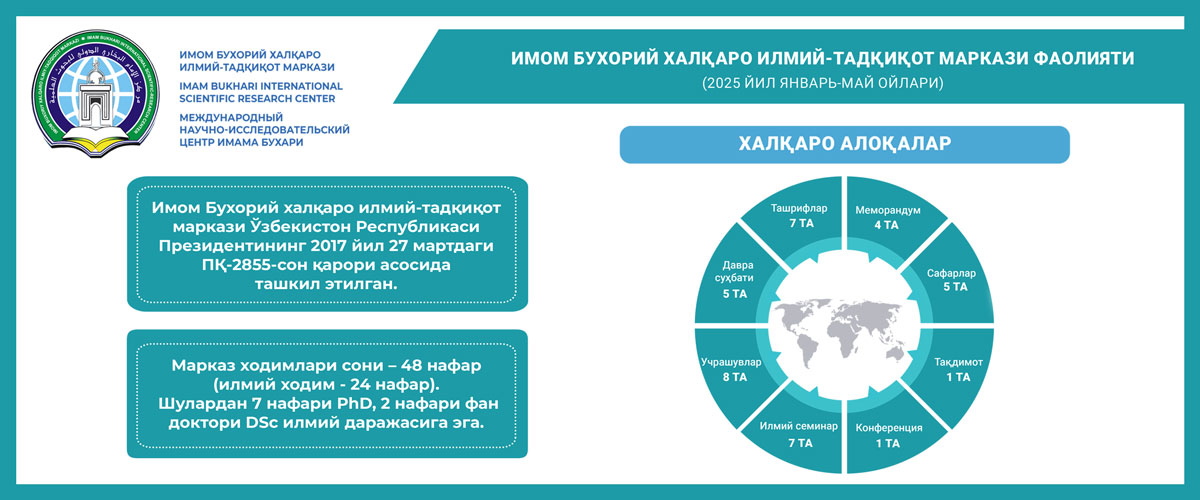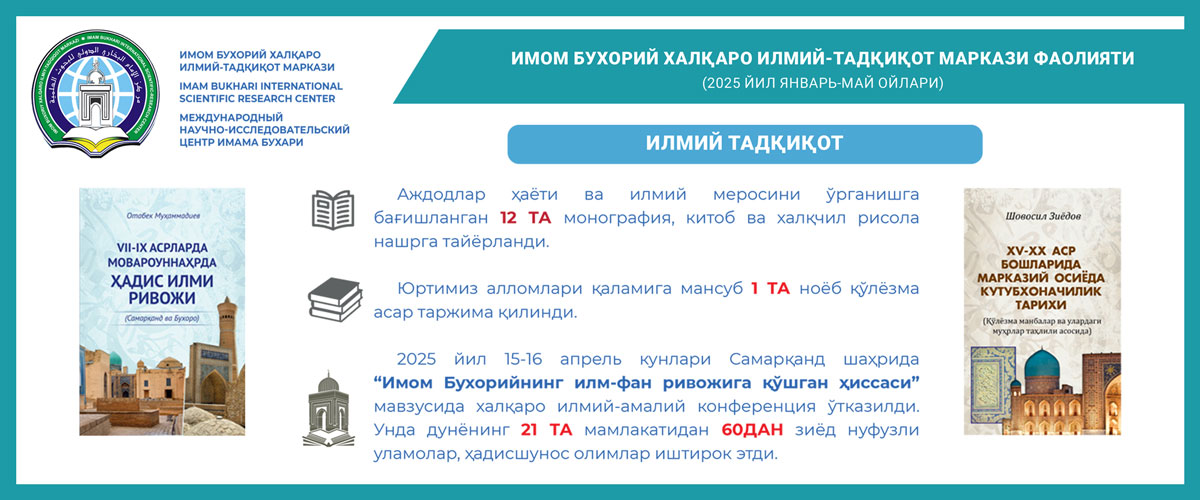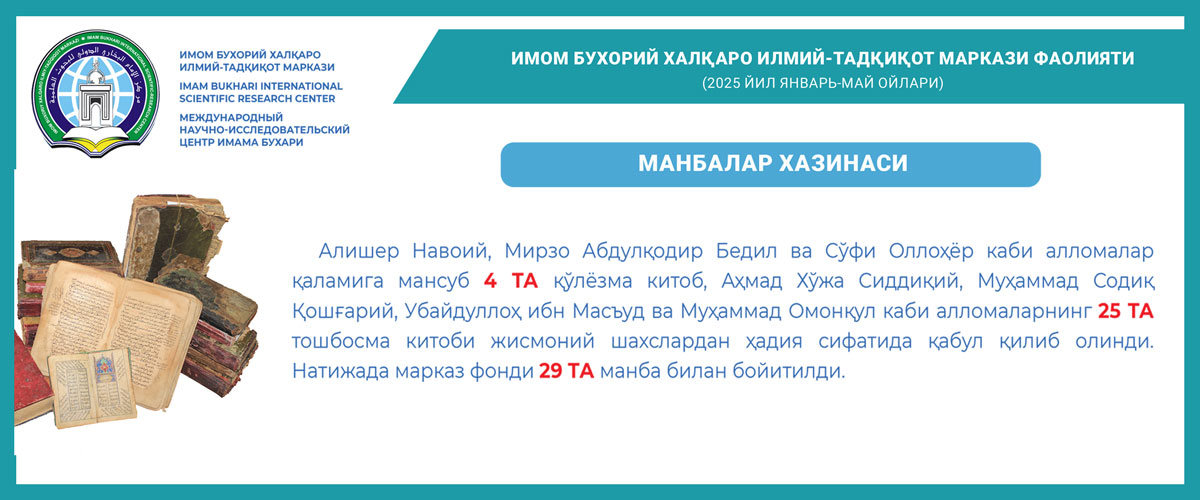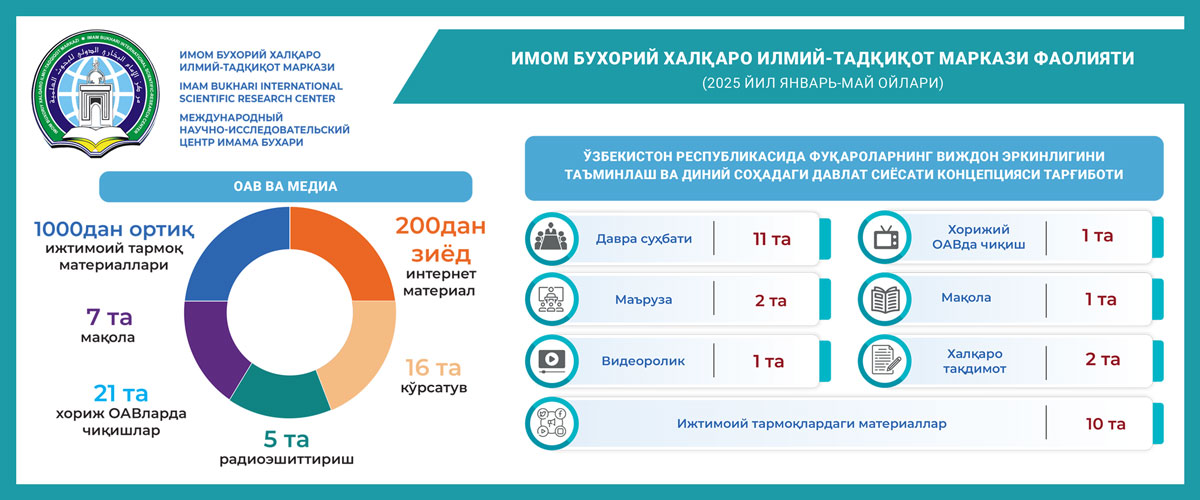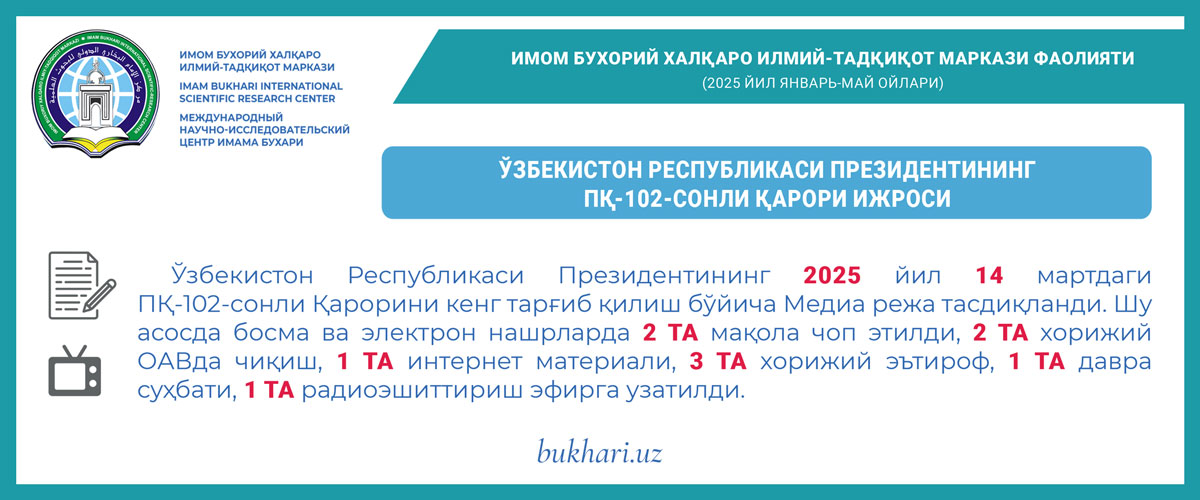Makhdumi A’zam made a noticeable contribution to such branches of science and education as philosophy, morality, Sufism and law. In his books “Miratu-s-safa” and “Risalai vujudiya”, he tried to develop the episte mological (gnosiological), ontological, methodological and axiological aspects of philosophy. Moral qualities of the rulers,spiritual leaders as well as the disciples are discussed in this book. The author tried to promote interesting viewpoints concerning the principles of educating a mature man. He took an active part in the development and perfection of the Naqshbandiya-Khajagan order in religion. He proved the advantages of the so called “zikri hufiya”, an implicit way of praying to the Creator. He discovered the main principles of settlement of contradictions and disagreements between parties and used them in practice, thus he founded the science of “practical conflictology”. In terms of modern approach to those notions we can call them the methods of “finding general points of the contradiction”, “tolerance”, “isolation of the subject of conflicts” or “avoiding the situation of conflicts”. By means of these methods, the author of the book managed to conciliate the rivalling parties of the rulers and could prevent massacre of the population of Bukhara.
Makhdumi A’zam was a great orator and when he made a speech in public, thousands of people gathered in the mosques and madrasahs. The audience listened to his speech with great attention and devotion. Under the influence of his speech, most of the listeners could find satisfaction for their unsettled problems bothering them and, even the non-believers or faithless people as well as people belonging to other religions began to adopt Islam. There is information that the representatives of the Jewish nationality were greatly interested in his speeches and, having listened to his speech, some Jews decided to adopt Islam.
Makhdumi A’zam had a rare ability of influencing on people psychologically and could use its branches in practice such as hypnosis, telepathy, telekinesis, levitation, transportation, etc. He left the secrets of these methods for only those reliable disciples who could keep them secret and use them without bias.
Makhdumi A’zam was a good agronomist and gardener. He invented the new types of fruit trees such as peach, fig, quince, melon, etc. He has also written some books dealing with the rules of agriculture and melioration. In Miyankul, he reclaimed and cultivated virgin soil and tugais and turned them into orchards and gardens as well as improved their melioration.
During the reign of the former Soviet regime, the works of Makhdumi A’zam were taken under the control of the ruling regime. It was prohibited to study them as they were defamed as “religious-clerical literature” and “works which mislead the ordinary people”. His literary heritage began to be studied only after the independence of our country. In 1992, the local authorities began to restore the mausoleum and the mosque of Makhdumi A’zam and this complex became a place of pilgrimage for the devout Muslims. In 1993, an International Conference dedicated to the memory of the great scholar and respected master Makhdumi A’zam was held in Dahbed (Samarkand). Articles, booklets and books about him began to be published. The books under his authorship also began to be printed. Among them we can see “Risalai chahor kalima”, “Risalai ilmiya”, “Risalai sharhi ghazali Ubaydullah”, “Risalai Baburiya”, “Risalai vujudiya”, “Risalai zubdatu-s-salikin va tanbiya-tu-s-salatin”, “Mir’atu-s-safa”, etc. The philosophical, moral and spiritual aspects of these works are under investigation now. Some scholars as E. Zairov, B. Valiyev and others defended their theses on these subjects. Such authors as B. Valikhujayev, A. Zahidi, O. Fayzullayev, N. Jabbarov, B. O. Turayev, K. Kattayev, A. Juzjani, I. Ghaziev, M. Qadirov, B. Babajanov, G. Navruzova, Kh. Davron, A. Khujayev and others have published a number of articles and monographic research works depicting the peculiarities of the works created by Makhdumi A’zam. This can be accepted as an example of respect and appreciation of the literary heritage and personality of Makhdumi A’zam.
 Imom Buxoriy xalqaro ilmiy-tadqiqot markazi bukhari.uz
Imom Buxoriy xalqaro ilmiy-tadqiqot markazi bukhari.uz
